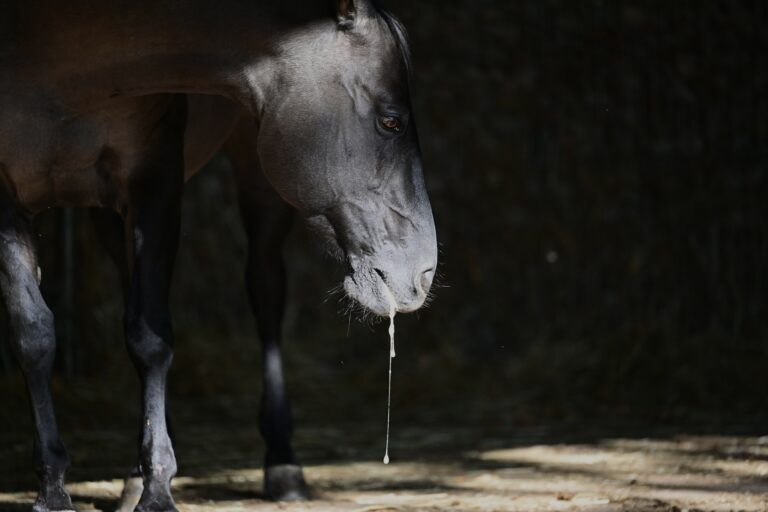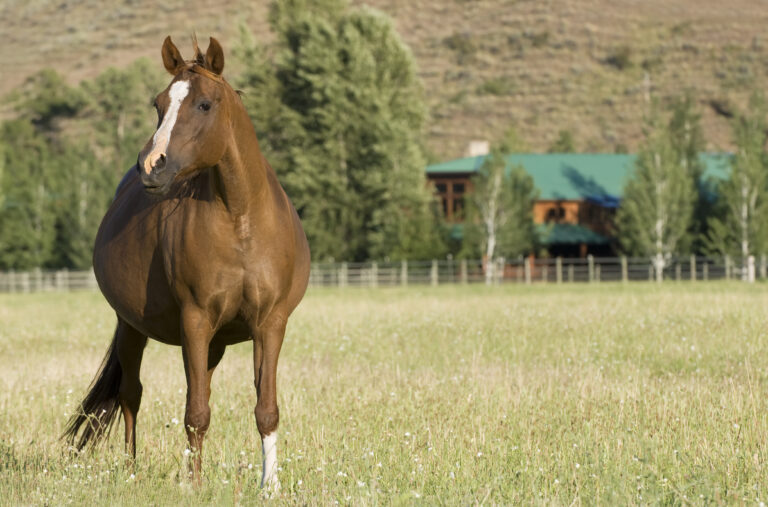
A horse with colic signs more than 48 hours after resolution of a previous colic is referred to as having recurrent colic. Generally, these horses have two or more colic episodes per year. It is relevant to differentiate recurrent versus chronic colic as this will change the differential diagnosis. A chronic colic is one that lasts more than 72 hours or persists for more than a week.
Potential Causes of Recurrent Colic
At the 2022 AAEP Convention, Louise Southwood, BVSc, PhD, DACVS, DACVECC, of the University of Pennsylvania, presented a number of potential causes of recurrent colic:
- Gastric ulceration: History is really important, especially if there are mild signs after eating or increased irritation and pain following nasogastric administration of water and electrolytes.
- Adhesions or stenosis at an anastomosis site from a previous surgery
- Neoplasia, especially in middle age and older horses
- Abscessation from a penetrating foreign body, Streptococcus or Rhodococcus infection
- Ileocecal or cecocolic intussusception especially in 2-year-old and yearling horses—pain can be intermittent.
- Enterolithiasis, especially in the western USA—might cause an intermittent obstruction.
- Sand or gravel enteropathy—might elicit diarrhea or poor performance. Practitioners should obtain a history of surface of pasture, paddock, and round pen.
- Nephrosplenic ligament entrapment—pain might be intermittent.
- Right dorsal displacement, large colon volvulus, impactions, “gas colic”—might be an intermittent recurrence. It is not always an anatomical displacement; it might be functional as well.
- Dysbiosis and/or parasite infestation
- Infiltrative inflammatory bowel disease
- Muscle hypertrophy
- Myenteric plexus ganglionitis
- Interstitial cells of Cajal abnormalities—these are pacemaker cells of the gut, so a problem will cause poor motility.
Epidemiology of Recurrent Colic
In a retrospective study of recurrent colic in 41 of 143 horses (29%), intestinal biopsy revealed inflammation in 54% and neoplasia in 22%. Cell type of the inflammatory conditions was lymphocytic/plasmocytic infiltration in 66%. Southwood says it is unknown if it Is a cause or an effect.
The epidemiology of recurrent colic is relevant and is in part related to management: dental problems; crib-biting, windsucking and weaving stereotypies; change in diet or housing; and coastal hay fed in the southeastern US. She notes that horses that are very intensely managed and stalled have less time at pasture yet are at risk of recurrent colic. Geldings, horses older than eight years, and horses with previous colic episodes or post-operative colic and potential adhesions have a greater incidence of recurrent colic. Warmbloods have more risk than Arabians, Standardbreds, and draft horses. Imported horses from Europe, compared to those from Ireland, have a higher chance of recurrent colic. Thoroughbred broodmares, especially younger ones, are at risk. Cecal impaction is also a risk factor, with a 42% occurrence in horses with previous colic and 22% with no previous colic.
Treatment Strategies
Treatment strategies include husbandry modifications of diet and exercise, routine dental care, parasite control, and management efforts to diminish stereotypies. Surgical options include nephrosplenic space ablation, colon resection and colopexy. Medical attempts include omeprazole and/or sucralfate. Transfaunation is another method that might improve microbiota diversity. To manage inflammatory bowel disease, Southwood recommended treating with fenbendazole for five consecutive days, and then giving praziquantel on day six. Prednisolone can help but does not provide long-term benefits. Initial response to treatment is good in 75% of horses, and the 3-year survival rate is 65% for treated horses.









